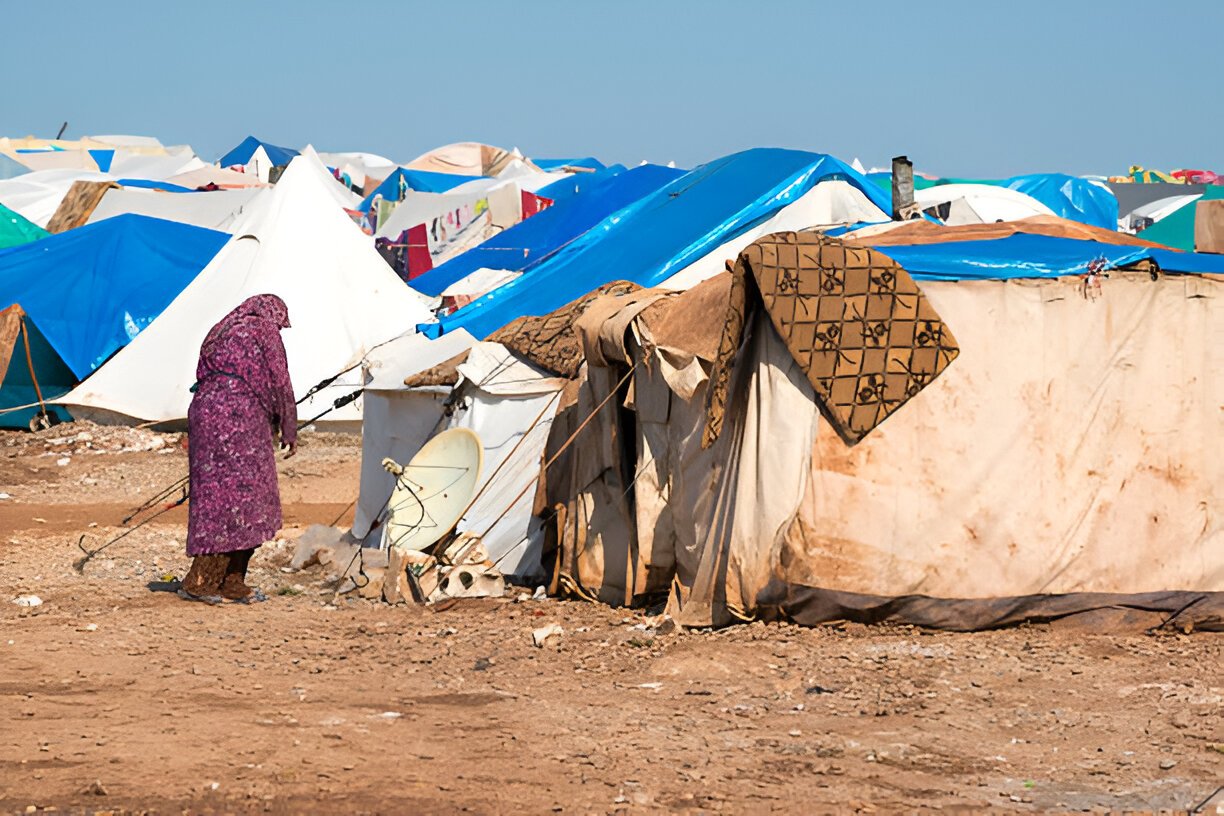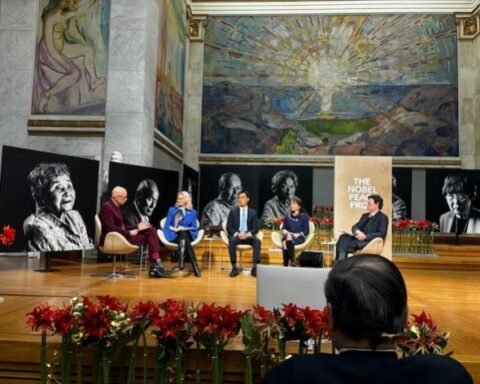The 13-year-old humanitarian situation in Syria is still not getting better. Syrians are facing increasing levels of poverty, starvation, and instability as a result of being displaced and dependent on charity. These difficulties have been made worse by declining international support and political paralysis. Syria’s predicament runs the risk of being overlooked as attention shifts to other international issues.
Economic Collapse and Inflation
Syria’s economy is in freefall. The Syrian pound has depreciated drastically, losing 90% of its value over the past two years. Inflation is at record highs, making essentials like bread and medicine unaffordable for most citizens. Food prices have risen over tenfold since 2019, leaving more than 12 million people food insecure.
The lack of fuel is another critical issue. Farmers cannot operate machinery, transportation costs have skyrocketed, and electricity is scarce. In some areas, people receive only one hour of power per day. Many families have resorted to burning waste to cook or heat their homes.
Displacement and Refugee Crisis
With more than 5.5 million Syrians seeking safety in nearby nations, Syria continues to be the world’s largest supplier of refugees. 6.8 million people are still internally displaced. Jordan, Lebanon, and Turkey all have overcrowded, underfunded, and increasingly difficult refugee camps.
Lebanon is dealing with its own economic crises and is home to more than 1.5 million Syrian refugees. Tensions between host communities and refugees have increased as resources become scarcer. Aid agencies caution that a lack of funds could make matters worse and compel refugees to return to dangerous regions of Syria.
Humanitarian Aid Shortages
Humanitarian groups are overburdened. The United Nations believes that more than 15 million Syrians require relief; yet, humanitarian program funding has drastically decreased. A shortage of donations has forced the World Food Programme (WFP) to reduce food rations.
Aid accessibility is another significant obstacle. Millions of people in opposition-held parts of northwest Syria are impacted by the restrictions on cross-border assistance delivery. It is challenging for humanitarian workers to reach individuals who are most in need because of persistent war and bureaucratic obstacles.
Healthcare Under Strain
The healthcare system in Syria is about to fail. Bombing during the conflict has left several hospitals and clinics inoperable. Staff, medication, and equipment shortages affect those that do operate. Millions now lack access to basic healthcare as a result of this.
In many regions of the nation, outbreaks of diseases that can be prevented, like cholera, have returned. The situation is especially bad in displaced people’s camps, where filthy conditions and congestion make it easy for illnesses to spread. Vaccinations and other essential treatments are difficult for aid organizations to deliver.
Political Stalemate and Its Impact
Syria’s political progress is still elusive. The majority of the country is still ruled by the government, which is led by Bashar al-Assad. Significant portions of the northeast and northwest, however, are still under the control of Kurdish-led organizations and opposition troops, respectively.
International talks have come to a standstill. With major international powers like the United States, Russia, and Turkey pursuing competing agendas in the region, the United Nations’ efforts to mediate peace talks have not produced much headway. Any real reconciliation or restoration is thwarted by this political impasse.
The Role of Sanctions
The goal of international sanctions against the Syrian government is to put pressure on Assad’s government to change. But they have also made things worse for regular Syrians. While financial transaction prohibitions have severely hampered the nation’s capacity to trade, import restrictions have resulted in shortages of essential products.
Sanctions, according to critics, hurt people more than they do the government. Humanitarian groups have demanded that restrictions be loosened so that people in need can access necessities.
Global Attention Warning
Other international crises, including the conflict in Ukraine and natural calamities brought on by climate change, have eclipsed Syria’s dilemma. As fewer nations prioritize help for Syria, donor fatigue is apparent.
Protesters caution that neglecting Syria may have long-term repercussions, such as increased instability and mass migration. They urge the world community to get involved in the crisis again, both diplomatically and through humanitarian relief.
The 2024 Syrian crisis serves as a sobering reminder of the human cost of ongoing hostilities. Poverty, displacement, and insecurity still affect millions of Syrians. The situation is expected to worsen further in the absence of greater international attention and resources.
In order to meet the urgent needs of Syrians and strive towards a long-term resolution to the crisis, the international community must take decisive action. If this isn’t done, Syria could become a forgotten tragedy.







